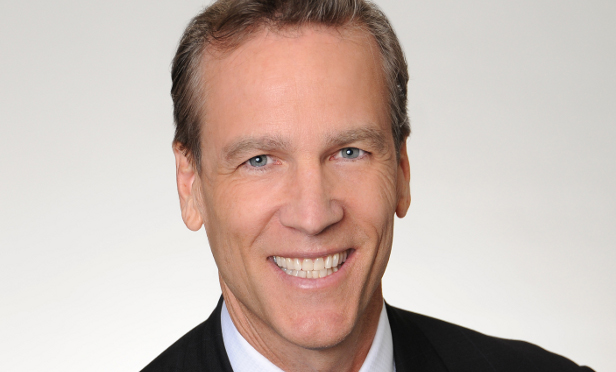 Cole: “In many cases when dealing with a family trust, you’re dealing with multiple members with different opinions and motivations relating to how long to own, when to sell and how to lease a property.”
Cole: “In many cases when dealing with a family trust, you’re dealing with multiple members with different opinions and motivations relating to how long to own, when to sell and how to lease a property.”
SAN DIEGO—Typically agile and highly motivated on the upside, private family trusts also often have the downside of inexperience, inadequate capital and too many decision makers to close a timely deal, Cushman & Wakefield managing executive director and investment-sales specialist Jeffrey Cole tells GlobeSt.com. As we recently reported, Cole, along with Jeff Chiate, Ed Hernandez and Bryce Aberg of Cushman & Wakefield’s Irvine and San Diego offices, recently collaborated to represent seller Gramercy Property Trust in the sale of a 132,695-square-foot office/flex corporate campus on 9.57 acres in the Kearny Mesa submarket here; the four-building complex sold to a private family trust. Brant Aberg of C&W’s San Diego office providing local market advisory. The property is 100% leased to Cobham Advanced Electronic Solutions, which recently signed a new long-term lease that includes major capital improvements underway throughout the entire campus. Located at 9404 Chesapeake Dr. and 5775, 5785 & 5788 Roscoe Ct., the Cobham Campus consists of four single- and multi-story buildings, each totaling between 30,500 square feet and 38,000 square feet. The campus provides ideal freeway access and also sits within close proximity to a large and expanding amenity base, in addition to both executive and workforce housing. Developed between 1983 and 1985, the campus was constructed to accommodate the region’s expanding office/flex tenant base in Kearny Mesa, including many of San Diego’s leading and largest defense users that command large blocks of space and functional layout in a first-class business environment.
We spoke with Cole about the various aspects of dealing with private family trusts in real estate transactions. GlobeSt.com: What are the pros and cons of selling to private family trusts?
Cole: In general, the pros usually are that they’re very motivated, and they usually have a specific type of property they’re looking for in terms of the size and time frames they’re looking to meet. They’re often under time constraints, which is usually a positive for the seller, and there’s certainty of closer for those reasons. They will also usually pay a premium for a property if it meets a certain unique need for the trust and is well located.
In this case, there was a growth-industry tenant, a positive story, with upside potential in a property they were looking for. The tenant was putting in a lot of new capital into these buildings—something like $6 million on top of the landlord’s contribution.
The cons are that private family trusts are typically, not real estate traders, and they’re not used to a lot of the due diligence necessary for the timeframes. Someone who is real estate savvy and experienced would know this. Institutional investors have the due-diligence process down to a science. They use third-party engineers who know how to look at a building environmentally and physically, spot asbestos issues, etc. Family-trust buyers usually don’t have the capability for that or can’t do it in a timely fashion. In this case, they were represented by a broker who recommended using third-party engineers and advisors who helped this trust get through a deal that was not easy to underwrite because of the property’s age and some nearby environmental things that had to be overcome as well.
GlobeSt.com: What’s unique about these types of buyers?
Cole: Groups like this have multiple lifetimes and decision makers, and there are sometimes a lot of chiefs—it’s not just one guy speaking for the trust. In many cases when dealing with a family trust, you’re dealing with multiple members with different opinions and motivations relating to how long to own, when to sell and how to lease a property. This makes that buyer different from the traditional operator who has decision making funneled into one or two people. Decision making is sometimes slower; at worse, you can be paralyzed.
GlobeSt.com: Do you expect to see more or less of these types of buyers as the real estate cycle continues to mature?
Cole: We saw quite a bit more in 2016 and sold to quite a few trusts, so it’s definitely in the market now. A lot more people are thinking real estate is an acceptable alternative investment for trusts. Now that these family corporations and trusts are allowed to use real estate as an alternative investment in their real-estate-defined benefit plans—part of the retirement plans for small corporations, which are sometimes family trusts, is investment in real estate, whereas before, they had to be limited to groups with advisors to provide a regular return and confidently predict income in the future. It used to be too volatile, but now it’s an acceptable form. It will become more of an attractive investment for family trusts going forward.
GlobeSt.com: What else should our readers know about private family trusts?
Cole: The thing that’s going to be the potential challenge for these investors is when you have a major capital requirement after the initial acquisition of an asset if a tenant leaves suddenly or some sudden physical requirements to improve infrastructure, such as roofs, HVAC and electrical. Sometimes it’s more difficult for trusts to anticipate having that capital readily available and able to spend. It’s something to watch.

















 Copyright © 2024 ALM Global, LLC. All Rights Reserved.
Copyright © 2024 ALM Global, LLC. All Rights Reserved.